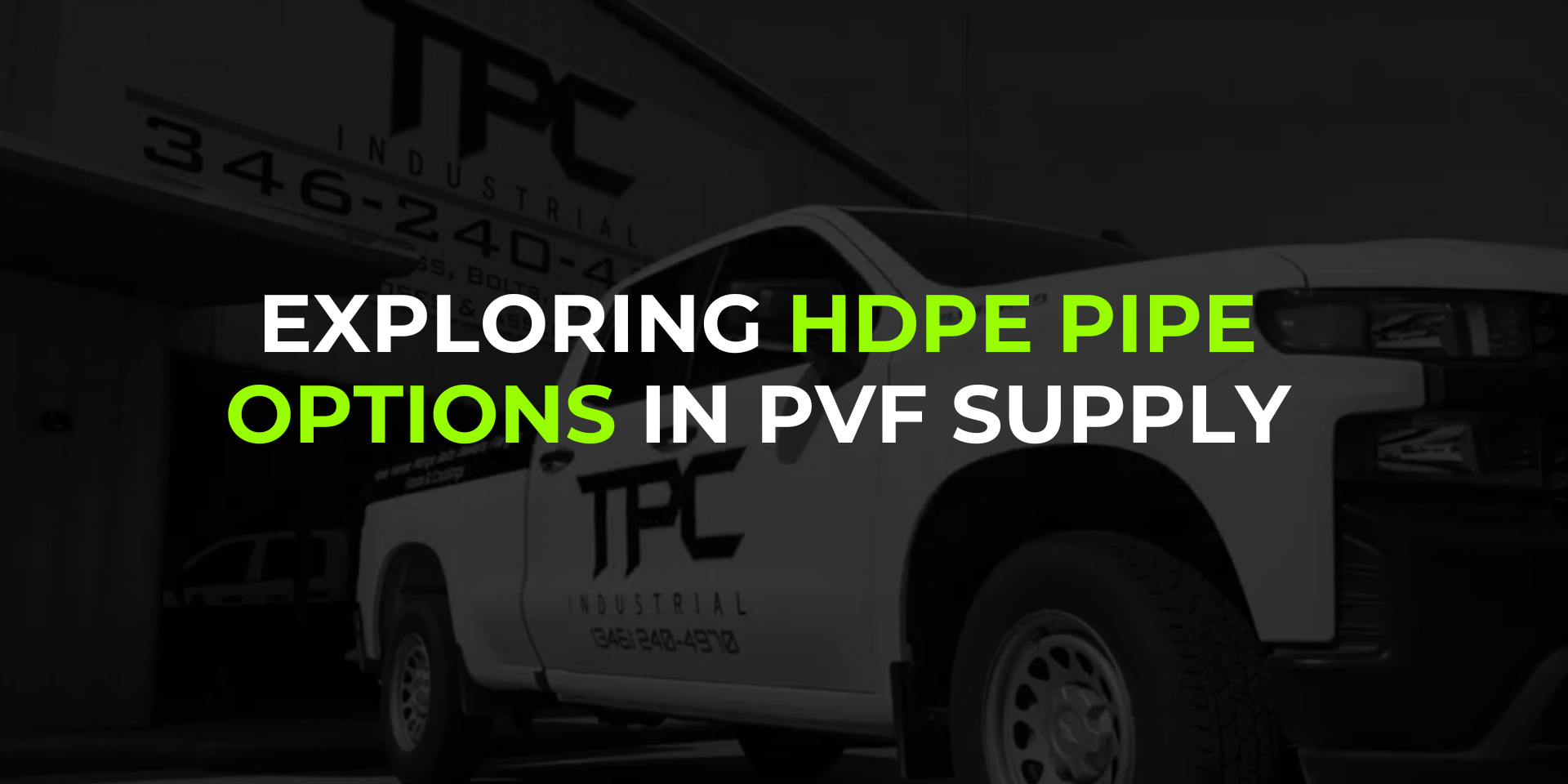High-Density Polyethylene (HDPE) pipes have gained widespread use across various industries due to their versatility, durability, and cost-effectiveness. From municipal water supply systems to industrial processes, HDPE pipes play an essential role in modern infrastructure.
What is HDPE Pipe?
HDPE pipe is manufactured from high-density polyethylene, a thermoplastic polymer that combines high strength with flexibility. This material is resistant to corrosion and environmental stress, which makes it ideal for applications requiring long-term durability. Because HDPE is lightweight and chemically inert, it can handle fluid and gas transportation with minimal maintenance.
Applications of HDPE Pipe
HDPE pipes are widely adopted across a range of sectors due to their adaptability and strength.
Water Supply Systems
One of the most common uses for HDPE pipe is in water supply systems. HDPE’s corrosion resistance makes it ideal for both potable and non-potable water distribution, whether in municipal networks or private systems. Its smooth interior surface reduces friction, helping to maintain efficient water flow and lower energy consumption over time.
Gas Distribution
HDPE pipes are extensively used in low-pressure gas distribution systems, such as natural gas and LPG pipelines. The pipes’ flexibility and reliable heat-fusion joining methods ensure leak-free connections, adding to their safety and efficiency over long distances.
Sewage and Drainage
In sewage and drainage systems, HDPE’s chemical resistance is crucial for handling wastewater and stormwater. Municipalities and private entities rely on HDPE for managing stormwater, runoff, and sewage due to its low maintenance requirements and longevity in corrosive environments.
- Industrial Applications: HDPE pipes are widely used in industries like chemical processing, mining, and manufacturing to transport aggressive chemicals, slurry, and process waste. HDPE is known for its resilience to abrasive substances, making it a smart choice in harsh, high-wear environments.
- Agricultural Irrigation: HDPE pipes support both sprinkler and drip irrigation systems. Their flexibility and weather resistance make them ideal for agricultural use, where systems may need to endure frequent movement and temperature extremes.
- Telecommunications and Electrical Conduits: As conduits, HDPE pipes are perfect for protecting underground fiber optic and electrical cables. Their flexibility and resilience make them especially suitable for areas prone to seismic activity or shifting ground, ensuring cables remain secure.
Types of High-Density Polyethylene Pipe
HDPE pipes come in several variations to meet specific demands across these applications.
Standard PE80 and PE100 Grades
Standard HDPE pipes are available in PE80 and PE100 grades, indicating pressure tolerance and material strength. PE100 offers higher strength and durability, making it ideal for high-pressure applications, while PE80 is used in general distribution networks.
Corrugated
Corrugated HDPE pipes, available in single-wall and double-wall designs, are often used in drainage applications. The double-wall type provides enhanced load-bearing capacity and durability, making it suitable for stormwater and other underground systems.
Structured Wall Pipe
These pipes feature a structured wall for added ring stiffness, making them highly suitable in applications requiring extra support, such as large-diameter sewage systems and high-traffic areas.
Steel Reinforced
For applications demanding added strength, HDPE pipes with steel reinforcement combine polyethylene’s flexibility with steel’s load-bearing capability, making them ideal for high-pressure gas lines and industrial applications where standard HDPE might not be enough.
Advantages of HDPE Pipe
HDPE pipes bring numerous benefits that make them a popular choice across various industries.
- Corrosion Resistance: Unlike metal pipes, HDPE does not rust or corrode. This resistance to chemicals and moisture significantly extends the lifespan of HDPE piping systems, making them ideal for water, wastewater, and chemical applications.
- Flexibility and Impact Resistance: HDPE pipes can absorb impacts and resist cracking, which is invaluable in seismic areas or regions with shifting soil. Their ability to bend also reduces the need for multiple fittings, simplifying installation and reducing costs.
- Leak-Free Joints: HDPE pipes are joined through heat fusion, creating a seamless, homogenous connection as strong as the pipe itself. This leak-proof joint is critical in gas and water distribution, where leaks could lead to hazardous situations or costly waste.
- Lightweight and Easy to Install: HDPE pipes are lighter than traditional metal pipes, making them easier to transport and install. This translates to reduced shipping costs and simpler handling on job sites, particularly in remote areas.
- Environmentally Friendly: HDPE is recyclable and often manufactured with a high percentage of recycled content. Its durability and low maintenance requirements reduce the environmental footprint associated with traditional pipe systems.
Selecting HDPE Pipe for Your Project
When selecting HDPE pipe, it’s essential to consider the specific demands of your project. This includes assessing pressure and temperature requirements, environmental conditions, and regulatory standards. HDPE is often the most cost-effective solution when considering durability, minimal maintenance, and a long service life, but initial costs and installation logistics should also be part of the decision.
Our HDPE Pipe Solutions at TPC Industrial
At TPC Industrial, we provide a comprehensive range of HDPE pipe solutions to fit a variety of project requirements. Our products meet rigorous quality standards, ensuring they are safe, reliable, and built to last. From standard pipes to specialized options like structured wall and steel-reinforced HDPE, we offer choices for every type of application. Our technical support team is available to assist with product selection, installation guidance, and industry best practices, helping you make the best choice for your needs.







